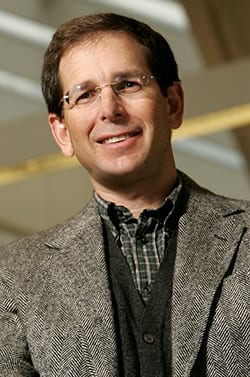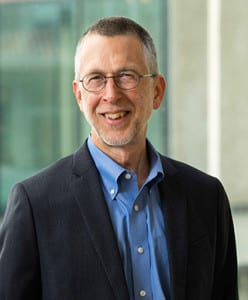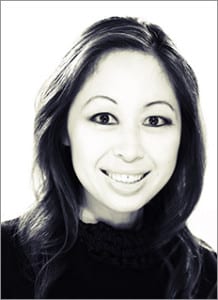By Andrew Cohen

The role of patents in the emerging dot-com era continues to flourish. Identifying this surge back in 2000, Berkeley Law Professor Peter Menell and his colleagues at the school’s Berkeley Center for Law & Technology (BCLT) helped launch the Advanced Patent Law Institute—a meeting of leaders in the field that has become an annual fixture in Silicon Valley.
Now in its 16th year, the event’s latest iteration takes place Dec. 10-11—when judges, patent officials, policy makers, professors, litigators, transactional attorneys, and in-house counsel will discuss the patent system’s far-reaching effects.
Patents did not figure prominently in the software industry’s early development in the 1970s and 1980s. “But with liberalization of patent eligibility in the 1990s and the emergence of the Internet, patents took on a much greater role in digital technology and biotechnology industries,” Menell noted. “By holding the Advanced Patent Law Institute in Silicon Valley, we’ve provided a convenient forum for digital technology companies, biotechnology companies, and especially startups.”
Events such as this, explained planning committee co-chair and BCLT Executive Director Jim Dempsey, underscore Berkeley Law’s broad reach in the technology world. For 16 of the past 18 years, U.S. News & World Report has ranked the school No. 1 in intellectual property (IP) law.

“The field of patent law continues to develop and the stakes are as high as ever,” Dempsey said. “We worked to ensure a diversity of presenters in every sense of the word, and to ensure comprehensive coverage of patent law issues.”
Notable speakers include Russell Silfer, deputy director of the U.S. Patent and Trademark Office (PTO), and Sir Robin Jacob, an IP professor and retired Lord Justice of the Court of Appeal of England and Wales. Slifer will review new programs designed to improve PTO procedures and patent quality, and Jacob will discuss the future of IP Litigation in Europe and the proposed Unified Patent Court for all member states of the European Union.
Menell’s panel will track how litigators are managing patent eligibility disputes amid varying rules—and outcomes—in different venues. Over the past five years, he said, the Supreme Court “has substantially shifted the patent eligibility landscape” and that panelists will “shed light on what’s happening” in the lower courts and the PTO.
Pushing for gender equity
Deanna Kwong ’04 joins a “Blocking Bias” panel that will propose ways for the male-dominated tech-law industry to become more inclusive. A private-practice attorney for 10 years before joining Hewlett Packard as IP litigation counsel, Kwong has observed “subtle, but pervasive gender biases” during her career and has “many friends” with similar experiences.

Exhibit A: At a recent mediation, Kwong’s opposing attorney—sitting directly across from her—“refused to make eye contact with me for almost his entire presentation.” Instead, he looked “diagonally across the table at my (male) outside counsel.” Exhibit B: “A male mentor once said to me, during a discussion about my professional development and strategies for advancement, that he didn’t know ‘whether my head was in the game’ because I had a young child.”
Kwong wants to remove the stigma around biases by educating people on how to be more aware of them and counteract them. “Everyone has unconscious biases about age, gender, race, weight, religion, even height,” she said.
In the legal profession, she said the topic “shouldn’t only be discussed when it’s time to check off the MCLE requirement for bias. It needs to be an ongoing discussion that legal departments and law firms maintain throughout the year.”
Alumni illuminators
Nine other Berkeley Law graduates from leading law firms, universities, and courts will share their patent law expertise. Karen Boyd ’96 will moderate a panel of federal district court judges—including Delaware’s Richard Andrews ’81—that reveals how they manage cases in an evolving patent paradigm.
Sean DeBruine ’93 will moderate a panel exploring new issues affecting Patent Trial and Appeal Board proceedings, and Colleen Chien ’02 will discuss where patent reform has advanced and stalled in 2015—and what to expect in 2016.
“Just this year, there were three important Supreme Court decisions in the patent field along with recent key decisions in the Federal Circuit,” Dempsey said. “Top litigators will highlight the still-developing impact of the Patent Trial and Appeal Board, and several panels will address international developments as the patent landscape becomes increasingly global.”
Lee Van Pelt ’93 and Mark Lemley ’91 will tackle the role of functional claiming in patent prosecution; Gabriel Ramsey ’00 will highlight ethical considerations in patent litigation; Scott Sher ’93 will explore antitrust and licensing issues; and Keith Slenkovich ’87 will track the current state of patent damages.
Since becoming the first law school center of its kind in 1995, BCLT has prioritized numerous collaborations to promote technology law and policy development. The Advanced Patent Law Institute, Menell said, “brings together a wealth of talent” in experts “who are at the forefront of the digital and bioscience law fields.”
The full list of expert speakers is available here.